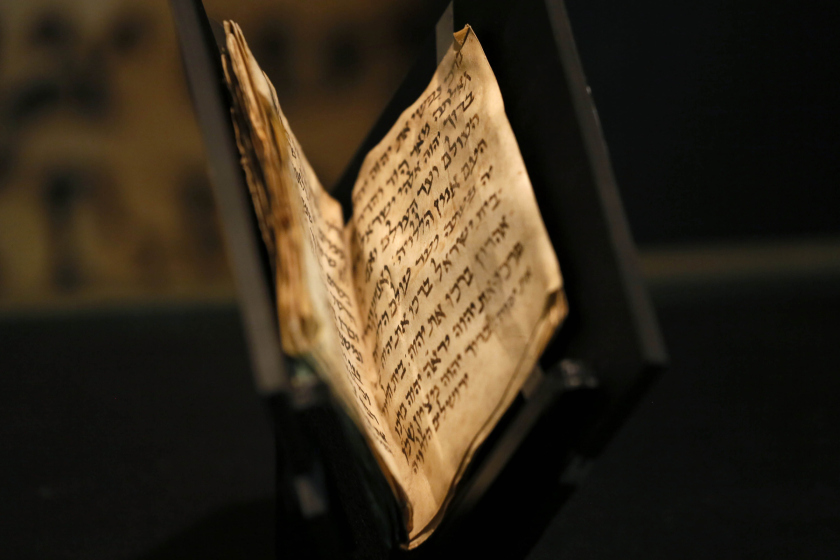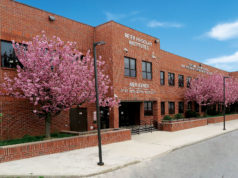
Lottie Chalom A”H
I remember her smile. When I think of her, it is the smile that comes to mind. It was her trade-mark—an expression of love for everyone who entered her home. I remember being in her kitchen with all my friends, laughing and having fun. I remember Lottie standing in the kitchen, hands always moving, always producing.
I can picture her rolling out the kaak, baking them, and then re-toasting them to get them really crunchy. I can smell the delicious Syrian smell—toasted sesame seeds, mahlab, yeasty, deli-cious kaak. Her famous fresh biscot-ti, yum, bring back such fragrant memories.

I remember her fondly—she and her smile and her kitchen—they were all one—an expression of giving, of caring, of love. In 2001, when Lottie passed away, the Chalom sisters Susan Menashe, Nina Cohen, Linda Dayan and Claudia Bildiricci, wanted to do something in her memory. They turned to Ezer Mizion to estab-lish a memorial connected to hesed with food.
That’s when the idea for Lottie’s Kitchen in Jerusalem was born. That large, new kitchen is now serving a couple of hundred thou-sand hot meals, sandwiches, and snacks each year. For close to 20 years, the Lottie’s Kitchen Summer Event on the Jersey Shore, has been one of the most well-loved and happy days in our community. It’s a beautiful day of warmth and fun, and all the women love it.
Every year the theme varies a bit, but it always has to do with our kitchen. This summer the theme was Our Elegant Syrian Kitchen. The beauti-ful home of Maureen and Salomon Cohen lent itself very well to the memories of architectural designs of Aleppo’s most beautiful family courtyards. It was sponsored by the family in memory of their moms, Josephine Tache, Fortune Haddad, and Annette Cohen, who smiled from above.

The day started with the fabu-lous live music of Josh Blanco and his Syrian ensemble. The sounds of Syria filled the air.Demos were done by Syrian women who are known for their authentic recipes. Coming in one of the last waves of immigration from our country to America they have that real touch with the spices.
Bella Zefrani prepared an amazing 52 t OCTOBER 2019 t IMAGE Arabic falafel salad. Shela Gindy gave us practical advice on the measurements of flavors for that perfect taste. She also showed us how to make proper Syrian pickles with green peppers and turnips. Her mom came in all the way from Panama. It was interesting to hear that women almost never went to the marketplace in Aleppo!
The men did the shopping. We learned how each family had their own way of preparing a pot of hameen and then taking it before Sabbath to sit in the oven overnight in the communal ovens. The famous Judith Tobal Betesh of Elvira’s All Natural was invited to demonstrate the mod-ern use of Tehina. Her degree in Integrated Holistic Nutrition made her information very much to the point.

Next up was Dorit Kanik of Nahoum Bakery who taught us that historically, Sephardic women have made all types of flat breads. For the Syrians it was pita bread. We’ve become accustomed to baking chal-lah which is really an Austrian tra-dition. We now have a beautiful simple pita bread recipe to high-light our Shabbat meals. Dorit actu-ally made it in a toaster oven.
Our friend, Rachel Gorcey, separated the required amount of dough to make the blessing and it was quite emotional to hear so many women respond “Amen,” simultaneously. The event featured the world famous French trained culinary expert Lior Lev Sercarz, founder of La Boite, who is noted for his 60+ beautiful blends of spices used in restaurants around the world.
He demonstrated his version of our own spice, baharat. Author of three books to date, Lior will soon be presenting his fourth, The Spice Companion, to an eager public. We finished our day with wise words from the most dynamic Rabbi Sholomo Farhi, from Edmond J. Safra Synagogue of Manhattan. The talk fit the day beautifully. He dis-cussed how important acts of kind-ness are to Hashem.
“Lottie prob-ably put an extra tray of her sem-bussak into her oven, because she was thinking of others who would appreciate it—and, look what has come of that,” he said. Rabbi Farhi’s address was powerful and inspiring in his expression of the beauty of our upbringing and how to carry that forth to a future generation.
A special thank you should go out to Maggie Bawaba, Bridget Ben Dayan, Margaux Betesh, Judy T. Betesh, Norma Cohen, Ricky Esses, Terri Harari, Ronni Kairey and Miriam Sabzheroo for their fantastic advice, and for doing an immense amount of work in so short a period of time.Much admiration to the Chalom sisters for their ongoing support to those in need.See you next summer!



